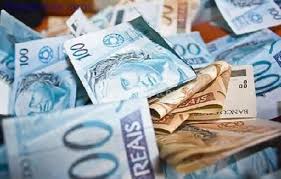By Josue Leonel and Blake Schmidt - Sep 27, 2012 1:22 AM GMT+0400

The real declined 0.2 percent to 2.0356 per U.S. dollar, extending its decline in the third quarter to 1.3 percent, the worst performance among the greenback’s 16 most-traded counterparts tracked by Bloomberg. Swap rates on contracts due in January 2014 were unchanged at 7.73 percent.
“The government is going to try its best to contain the real from a speculative attack as the expectation for flows is very positive,” Italo Abucater, the head of currency trading at Icap Brasil, said in a phone interview from Sao Paulo. “And the market abroad has been bad since yesterday.”
The real also fell against the dollar along with most other major currencies as concern global stimulus measures will fail to bolster the economy encouraged demand for a refuge.
Brazil may take action to protect the real from stimulus by central banks in the U.S., Europe and Japan, Valor Economico reported, citing an official in the government’s economic team whom it didn’t name.
Possible government measures include boosting dollar reserves and reducing the primary surplus to allow for more tax cuts, the newspaper reported. An official at the Finance Ministry said it doesn’t comment on reports based on unidentified people.
Rousseff at UN
Brazilian President Dilma Rousseff criticized the U.S.’s and Europe’s handling of the global economic crisis, saying in a speech to the United Nations yesterday that a reliance on monetary policy won’t revive world growth and is unfairly hurting emerging markets.
In the opening address of the UN’s 67th General Assembly, Rousseff said emerging-market currencies have suffered an “artificial appreciation” as a result of the monetary policies adopted by rich nations.
Finance Minister Guido Mantega said last week that Brazil’s government stands ready to act to prevent the real from rallying in response to the extra stimulus.
The real has slid 8.3 percent against the dollar in 2012 as Brazil’s government supported industry by raising tariffs and imposing barriers on capital inflows. The central bank auctioned $5.7 billion in four reverse currency swaps Sept. 12 through Sept. 17 to contain the real.
Policy makers have cut the target lending rate by 5 percentage points since August 2011 to a record low 7.5 percent, the biggest reductions among Group of 20 nations. Trading in swap rates indicates the benchmark Selic may be lowered by a quarter-percentage point in October.
Spanish bond yields surged today the most this month as demonstrators planned a second night of protests in Madrid. European stocks fell the most in two months on concern the debt crisis is worsening. Oil retreated for a third day while Treasuries extended their longest rally since 2008.
To contact the reporters on this story: Josue Leonel in em São Paulo at jleonel@bloomberg.net; Blake Schmidt in Sao Paulo at bschmidt16@bloomberg.net
To contact the editor responsible for this story: David Papadopoulos at papadopoulos@bloomberg.net
Brazil’s real dropped for a fourth day in the longest stretch of losses in September after a newspaper reported that the government may take steps to prevent the currency’s appreciation.
The real declined 0.2 percent to 2.0356 per U.S. dollar, extending its decline in the third quarter to 1.3 percent, the worst performance among the greenback’s 16 most-traded counterparts tracked by Bloomberg. Swap rates on contracts due in January 2014 were unchanged at 7.73 percent.
“The government is going to try its best to contain the real from a speculative attack as the expectation for flows is very positive,” Italo Abucater, the head of currency trading at Icap Brasil, said in a phone interview from Sao Paulo. “And the market abroad has been bad since yesterday.”
The real also fell against the dollar along with most other major currencies as concern global stimulus measures will fail to bolster the economy encouraged demand for a refuge.
Brazil may take action to protect the real from stimulus by central banks in the U.S., Europe and Japan, Valor Economico reported, citing an official in the government’s economic team whom it didn’t name.
Possible government measures include boosting dollar reserves and reducing the primary surplus to allow for more tax cuts, the newspaper reported. An official at the Finance Ministry said it doesn’t comment on reports based on unidentified people.
Rousseff at UN
Brazilian President Dilma Rousseff criticized the U.S.’s and Europe’s handling of the global economic crisis, saying in a speech to the United Nations yesterday that a reliance on monetary policy won’t revive world growth and is unfairly hurting emerging markets.
In the opening address of the UN’s 67th General Assembly, Rousseff said emerging-market currencies have suffered an “artificial appreciation” as a result of the monetary policies adopted by rich nations.
Finance Minister Guido Mantega said last week that Brazil’s government stands ready to act to prevent the real from rallying in response to the extra stimulus.
The real has slid 8.3 percent against the dollar in 2012 as Brazil’s government supported industry by raising tariffs and imposing barriers on capital inflows. The central bank auctioned $5.7 billion in four reverse currency swaps Sept. 12 through Sept. 17 to contain the real.
Policy makers have cut the target lending rate by 5 percentage points since August 2011 to a record low 7.5 percent, the biggest reductions among Group of 20 nations. Trading in swap rates indicates the benchmark Selic may be lowered by a quarter-percentage point in October.
Spanish bond yields surged today the most this month as demonstrators planned a second night of protests in Madrid. European stocks fell the most in two months on concern the debt crisis is worsening. Oil retreated for a third day while Treasuries extended their longest rally since 2008.
To contact the reporters on this story: Josue Leonel in em São Paulo at jleonel@bloomberg.net; Blake Schmidt in Sao Paulo at bschmidt16@bloomberg.net
To contact the editor responsible for this story: David Papadopoulos at papadopoulos@bloomberg.net